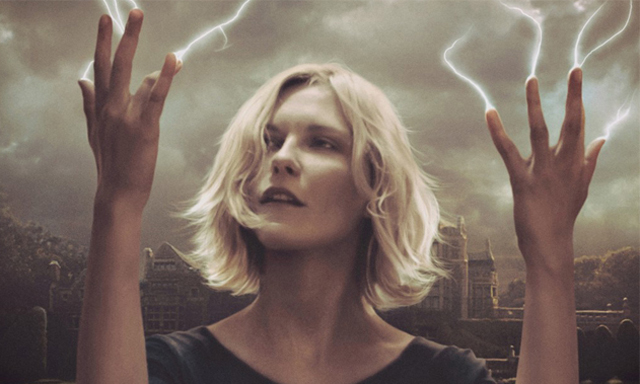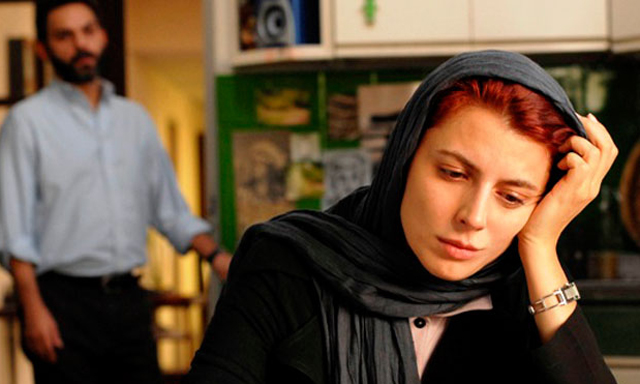Whether 2012 was a reasonable year for cinema or an appalling one, depended largely on whether you watched films on an increasingly hollow mainstream circuit, or, like so many serious film fans, restricted your viewing to festivals, DVDs and the increasingly ubiquitous (although illegal) phenomenon of downloads and hard-drive harvesting.
Regardless, one thing is certain – 2012 was the year in which global cinema became emphatically schizophrenic as the divide between the mainstream Hollywood circuit and the bulk of cinematic expression became particularly marked.
Despite my constant complaints about the empty excesses of Hollywood, I’m not an avowed hater of blockbuster productions – I like a big budget film as much as your average film-goer – so long as the output is engaging and entertaining. But that was decidedly not the case in 2012, a critical judgement that was reinforced by the fact that many people I know have stopped going to the movies that often because, to quote a frequently repeated phrase, “there’s nothing on”. In fact, I can’t recall a single Hollywood production from this year that enthralled me in ways that, say, Peter Jackson’s first Lord of the Rings film, or even the first Harry Potter outing, did, although the masterfully ambitious Cloud Atlas came close and was easily the best blockbuster to grace our screens, followed several leagues behind by the filmed version of The Hunger Games, which only deserves a mention here because everything else was so disappointing. And although, it’s a television show, and not a piece of cinema, it’s worth pointing out that not a single mainstream production came anywhere near the depth, complexity and engagement of the Claire Danes vehicle Homeland.
And so, Cloud Atlas aside, it was left to a handful of mostly independent films that slipped through the cracks and onto our screens to provide a few notes of redemption in 2012. I should point out that most of these films stayed on circuit for not much longer than a butterfly’s breath. And also that I’ve restricted my selection to films that actually showed on commercial screens in Durban rather than the excellent spread of films that were available at the Durban International Film Festival.
Lars von Trier’s Melancholia didn’t even receive a full week of screening, but was easily one of the finest pieces of cinema I saw this year. Both an end-times film and a powerfully expressive metaphor for depression, the film featured superb performances from Kirsten Dunst and Charlotte Gainsbourg. Slow and almost painfully beautiful, it was in many ways, Von Trier’s anti-film, rejecting the rules of Dogma that the director instituted with such rigour in works such as Dogville and The Five Obstructions, but no less remarkable for doing so.
Monsieur Lazhar, from Canada, was a moving work of humanist cinema that was also a low-key expression of the Zeitgeist of our times, exploring notions of inclusiveness and the limits of liberal thought. Telling the stories of an Algerian teacher who arrives at a Montreal school to replace a teacher who has recently hanged herself in the class room, the film was directed with exquisite restraint and featured a superb ensemble of performances, particularly from the younger members of its cast.
Ruby Sparks from music video directors Valerie Faris and Jonathon Dayton, was an intelligently rendered love story about a best-selling author who writes his dream girl into existence. Tracing the footsteps of Charlie Kaufman, Spike Jonze and Michel Gondry, the film promises great things to come from the directorial duo.
The Oscar-winning Iranian film A Separation was a cogent reminder that human dramas are still a powerfully expressive medium when they are not coddled in layers of artifice and sentiment, and that sometimes love is not enough to maintain a relationship.
Beasts of the Southern Wild was my very favourite film of the year. Made for the relatively microscopic budget of $1.5 million dollars, first-time director Benh Zeitlin managed to produce a work that was epic in its scope while also providing a particularly rare interior and emotional intimacy. Telling the story of six-year old Hush Puppy and her perceptions of the rising waters in a fictional Louisiana bayou, it was a thrilling, entertaining and incredibly moving nod towards the fragility of our rapidly deteriorating planet. The film has been celebrated around the world, even achieving a wide release in America, where audiences embraced the film in a manner that is extremely rare for independent productions.
At the other end of the spectrum, the mega-budget production Cloud Atlas proved that all the money in the world doesn’t mean that a film has to be empty and meaningless. Based on the 2004 novel by David Mitchell, the film moved effortlessly across space and time, exploring the repetitive nature of human experience, and suggesting, a little too sentimentally at times, but also with a breathtakingly cinematic breadth, that it is love, rather than power and wealth, that is the essential driver of human history. Whether, that’s true or not, it’s not an unpleasant thought on which to end a year in which the world failed to come to an end.


